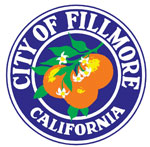|
UPDATED: City settles Brown Act violation lawsuit
By Anonymous — Wednesday, November 18th, 2009
City must admit guilt, pay attorney fees, & attend two hour training course taught by Schneider & McKee
 City of Fillmore Last Wednesday, November 11, 2009, a settlement agreement was signed between the City of Fillmore and Richard McKee, President Californias Aware, ending McKee’s lawsuit against the city. The Agreement contains the three items McKee demanded: 1. A public admission of the City Council's "errors;" 2. A 2-hour Brown Act retraining for the City Council offered by the City Attorney and McKee at a special meeting before the end of the year; and 3. Payment of McKee’s attorney fees and costs, totaling $6,000. In return, McKee will dismiss the lawsuit. McKee brought suit claiming the Fillmore City Council violated the Brown Act. Under the settlement, the city will issue a written statement admitting that Brown Act violations were committed at the August 25 council meeting. The Ventura District Attorney’s office investigated the council’s action(s) and concluded not to file misdemeanor charges or a civil action against the council for the alleged Brown Act violations. In a Letter to the Editor, posted on page 2 this edition, McKee stated, “It can be argued that the Council acted improperly to avoid embarrassment. That is, they violated the Brown Act in an attempt to avoid the embarrassment of having to admit they had violated the Brown Act.” McKee goes on to say that a “greater concern” exists for the citizens of Fillmore and Ventura County—“a District Attorney’s Office either ignorant of the law or willing to compromise itself by sanctioning these obvious violations.” Michael Schwartz, Ventura County Special Assistant District Attorney, responded to Mr. McKee’s letter (Letters page 2) stating in part, “A lawsuit by the DA against the city would have been an unnecessary and inappropriate expenditure of public funds because the council took prompt action to resolve the problems and no additional violations were threatened.” On August 25, in a letter to Fillmore City Clerk Clay Westling, Councilman Steve Conaway accused three other members of the council of violating the Brown Act by participating in a private meeting earlier in the month and acting on information gleaned from the meeting. The meeting, held with then-city manager Larry Pennell, concerned the council’s search for a permanent city manager. In response to Conaway’s letter regarding the accusation, Mayor Patti Walker began the council’s meeting that night by requesting an immediate closed session to discuss the accusations. The letter stated that he became aware, via email sent to him from Walker, that a Brown Act violation occurred involving three of his fellow council members. The letter read that the “serial meeting was arranged and facilitated by transitional City Manager Larry Pennell. Mr. Pernell intentionally sought concurrence of thought from a majority of the city council. He and Mayor Walker received and acted upon information which, they gleaned from the ‘hub and spoke’ serial meeting.” The closed session was not listed on the council’s agenda, and constituted a second violation of the Brown Act. Schwartz also concluded that the “council violated several provisions, including an exchange of e-mails that constituted an improper “serial meeting,” and irregularities regarding a closed session to address the original violation”. McKee concluded his letter with “the California Legislature state clearly when revising the open meeting law, complete, faithful, and uninterrupted compliance with the Ralph M. Brown Act is a matter of overriding public importance.” See file attachments below... |
